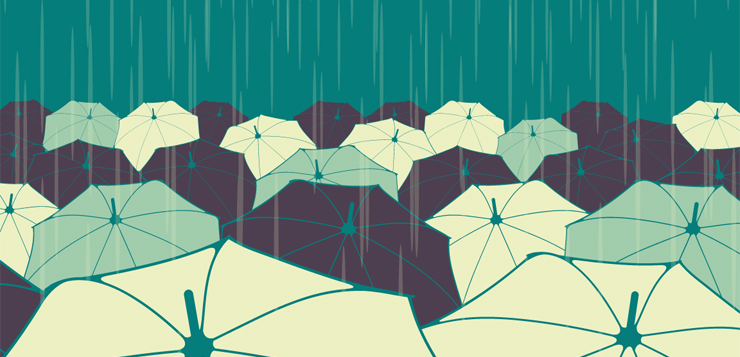There are other contenders beyond simply those options in the title, of course. A tech-type person might scream out “Engineering background!” — or, worse yet, “AI skills!” (AI is just a meeting scheduling hack in 87 percent of cases right now. Until you understand that, you’re clueless as to how “biz” gets done.)
But here’s why I’d argue for each of these — >
Resilience
Shit changes very quickly in business. You have growing concerns about automation. People downsize all the time to save costs. Even when you get a job, there are virtually no guarantees associated with it. Most companies view you as a unit of productivity or a number, sadly. So there’s going to be a lot of moving around; people staying at jobs even five years these days is increasingly rare.
You need to be resilient, bob and weave between different things, go lower than what you know you’re capable of periodically, and just kick tires on different options you may never have considered. Find different ways to get bread. Respond to situations differently than you normally would. There is not really a linear track anymore. You gotta go figure your own path out. Some days, that’s absolutely exhausting. Some days it can be pretty cool.
You can look at my own deal for examples of this. My whole life, in the span of two years, is basically completely different. You get through by being resilient.
Ideas opposite your own
I will spare you the echo chamber arguments. I think you know what those are. Technology has been great for communication and finding new relationships (just think of dating) and learning from others, but it’s also a force multiplier. See, medicine has given us some amazing stuff. But it’s also allowed for the development of biological weapons. Tech has given us some amazing stuff (think of Arab Spring). It’s also allowed “corners of hate” or “hate clusters” to spring up, and people find like-minded views and cling to those. No one tries to learn from people with different viewpoints. The easiest execution of this in the U.S. is “Trump people” vs. “non-Trump people.” Usually that’s just a lot of online (or in-person!) screaming.
But there is value in listening to others who maybe think a few tiers off how you do:
But I have come across many leaders who prefer talking over listening, who consider themselves the smartest person in the room, and who reach decisions based on their feelings and wants. Disagreement is not only the hallmark of democracy, it is a fundamental of great leadership. Disregarding different and opposing perspectives can block the emergence of ideas and solutions. Leadership should never be about one person’s agenda; it’s about facts, mission, vision, values, and principles. Consequently, it is of great importance to seek inclusive dialogue.
That’s the former president of Tulane University. Now I want you to look at the below screenshot from this article:

Most of us have had this manager. Some of us may have even been this manager. This type of manager is virtually incapable of listening to a position opposite his or her own. He/she may be incapable of listening to positions similar to their own, honestly — they are that self-absorbed.
Back in March of 2015, I wrote about this too: needing to be comfortable with ideas opposite your own.
So which one should win?
Obviously you would like professionals to display both qualities: resilience in the face of things changing, and an ability to listen to viewpoints different from what they believe. In fact, the ability to listen to differing viewpoints may even help you with resilience! I mean, right? Seems logical to me.
If I had to pick only one, I’d say individually you need resilience — there are absolutely no guarantees in white-collar work, be it for-profit or non-profit — and organizationally you need an ability to listen to differing viewpoints. Too often at the organizational level that doesn’t happen, and all information is clustered near the top, and that creates what is often called “homophily,” which feels comforting for a while but ultimately gets your ass disrupted.
What would be your vote?

Hey Ted-
Love the blog and this article. I am struggling to see the resiliency as somehow opposite or opposed to open to outside ideas.
I think that resiliency is a necessity to get through life any more. It is also a skill that must be developed and honed. I think that being open to outside ideas helps with self awareness, which i think is a major part of being resilient.
So, thanks for doing what you do by creating compelling content that often makes me scratch my head and say, “damn. That was good. I like the way he made me think.”